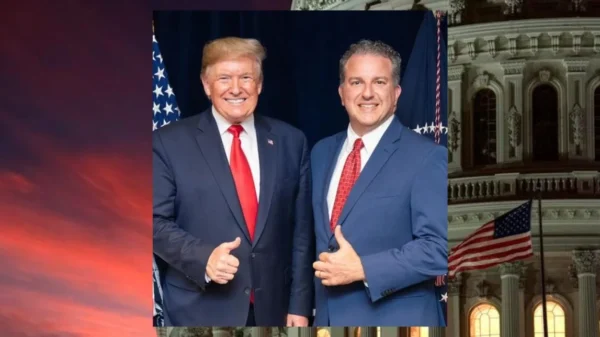This week, Florida Chief Financial Officer (CFO) Jimmy Patronis sent a letter to U.S. Transportation (DOT) Sec. Pete Buttigieg requesting the federal government work to mitigate the threat of electric vehicles (EVs) following Hurricane Ian, which caused salty storm surge waters to be shoved into the Southwest Florida coast.
The CFO’s letter asks U.S. DOT to take a more proactive role in identifying storm impacted EVs and getting them off the roads, out of salvage yards and away from the general public to prevent fires.
The letter is below.
Dear Secretary Buttigieg:
The State of Florida is requesting a more robust response to the threat posed by electric vehicles (EVs) in the aftermath of Hurricane Ian, which caused salty storm surge waters to be shoved into the Southwest Florida coast.
In early October, I was assessing recovery operations with North Collier County Fire Rescue as they responded to an EV fire that was continuously reigniting. Following the incident, we asked the National Highway Traffic Safety Administration (NHTSA) about the threat to EVs in a saltwater environment and the agency did confirm that “[S]pecific to saltwater submersion… salt bridges can form within the battery pack and provide a path for short circuit and self-heating. This can lead to fire ignition.” When my office asked NHTSA and Tesla officials on how long the risk of fire exists once a battery is compromised from saltwater and/or damage, no credible timetable exists, because the current situation has not been fully researched. In fact, NHTSA stated directly to Florida that, “As with other forms of battery degradation, the time period for this transition from self-heating to fire ignition can vary greatly.” Meanwhile, the State Fire Marshal’s Office has confirmed 16 EV fires occurred as a result of Hurricane Ian, including 14 Tesla, one Porsche, and one Lucid.
Thus, the facts on the ground from Hurricane Ian as it relates to EVs are the following:
There is no guidance as to how long the threat from saltwater intrusion on a battery exists, due to lack of studies or research.
There is no effective method to fully extinguish an EV fire.
There is no fire suppression system, or warning system built into EVs.
Manufacturers have been unwilling and/or unable to report location data of potentially impacted vehicles to the state.
When Florida asked Tesla if they were able to assess post-storm impacts to batteries, the manufacturer stated that the insurer would make those determinations.
There is no federal process for ensuring EVs are not resold and trucked to other parts of the nation.
As you have been a major proponent of EVs, and as taxpayers have been subsidizing the growth of this industry, it is time your agency works to mitigate the threats of these vehicles to first responders and their owners. The federal government needs to take a more proactive role in identifying storm impacted vehicles and getting them off the roads, out of salvage yards and away from the general public. This requires engagement from consumers, manufacturers, first responders, wrecker associations, re-builders and insurers.
Unless the federal government takes more of a proactive stance, I fear we may see more fires related to Hurricane Ian down the road. In the absence of data, we have yet to be presented with any evidence to the contrary. There is an ongoing science experiment in Florida, and the U.S. DOT has an opportunity to assess these damaged cars and create policies to protect our first responders for future storms.
Research on this subject will lead to innovations that can be used in the future to enhance public safety and bridge the knowledge and safety gap that now exists in a dynamic, growing EV industry. Florida stands ready, at the epicenter of the current crisis, to collaborate with your staff and share all the lessons learned from our first responders and local public safety officials. Our shared goals should be a safer environment for everyone involved with electric vehicles.
Please feel free to reach out to my office at [email protected] or (850) 413-3100.
















